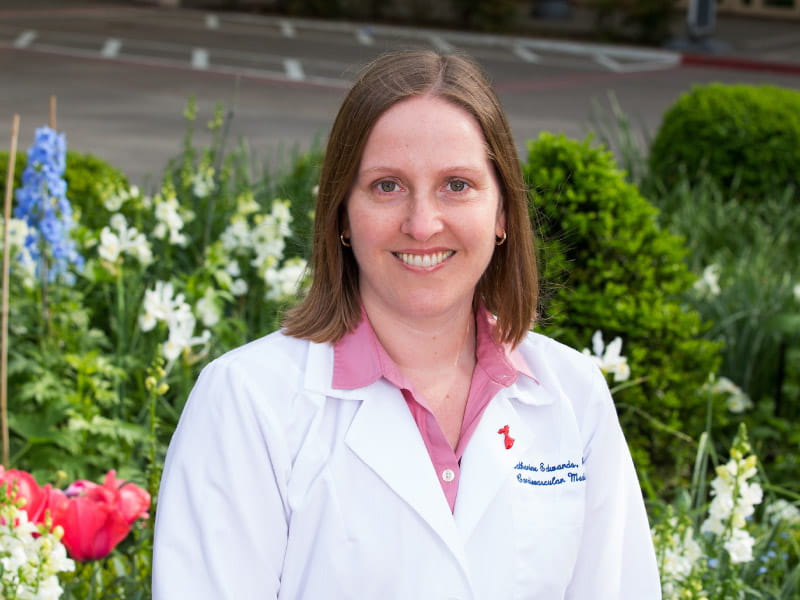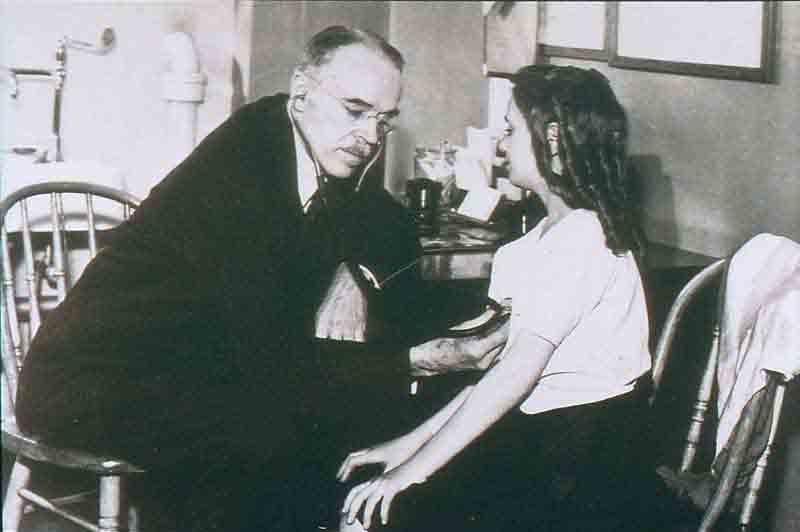A century later, psychologist carries on a heart-focused family legacy

The footsteps of a family giant sometime echo in the career of cardiac psychologist Katie Sears Edwards.
Even though she never knew that giant — cardiology legend Paul Dudley White — she feels her distant relative's influence.
A century ago, White, who died in 1973, helped found the American Heart Association. Among many accomplishments, he is regarded as the founder of preventive cardiology for promoting the idea that lifestyle affects coronary artery disease. He's also remembered for his compassion and advocacy for the patients in his care.
"He really made a point of being very kind to patients, treating everyone very humanly, which is definitely something that's stuck with me," said Edwards, an AHA volunteer and member of the Bay Area board of directors. "My whole work in cardiac psychology is about treating the whole person, not just their heart condition."
White was President Dwight D. Eisenhower's cardiologist following his heart attack in 1955, and played a key role in his recovery, allowing Eisenhower to run successfully for a second term. White published more than 700 scientific articles and 12 books, including the classic 1931 textbook Heart Disease. He also worked extensively to describe a disorder involving the heart's electrical system, now known as Wolf-Parkinson-White syndrome.
But for years, White was a somewhat mysterious figure to Edwards, who was born after his death. Through her mother, she learned her maternal great-grandfather, gastroenterologist Franklin Warren White, was first cousins with Paul Dudley White's father (Dr. Herbert Warren White) and had mentored him at Massachusetts General Hospital in Boston.
One family story that left a lasting impression was her mom describing White's fascination with the heartbeat of whales.
"As a child, I envisioned him out there in the water with a stethoscope, listening to the whale's heartbeat," she said with a laugh. "He was interested in the electrophysiology of many different animals."
She also heard stories of White's devotion to exercise. An avid walker and bicyclist who promoted a national program to improve heart health through physical activity, White is memorialized in the Paul Dudley White Bicycle Paths that line the Charles River in Boston.
"My aunt told me that when he came to her wedding, he refused to drive to the reception hall. He walked there in 20 minutes while everybody else drove," she said.
"My mother's family, the White family, is really active, so being physically fit became a pretty important thing for me as well," said Edwards, who rowed competitively in high school and college and was captain of Stanford Women's Crew.
The death of her maternal grandmother, Suzanne White, inspired her to become a hospice volunteer and then study health psychology. Today, she's a clinical assistant professor of medicine at Stanford University and one of the few cognitive behavioral therapists in the U.S. who specialize in cardiology.
Her goal is to apply what's known about psychology to people who are adapting to big changes after a heart disease diagnosis or a sudden cardiac event.
"Often, they have a lot of anxiety and focus on the worst-case scenario," she said. "I try to help them appreciate the many resources we now have in cardiology and help them have a more optimistic mentality about coping with heart disease."
The power of positive thinking turns out to be a family trait, as Edwards found out when she read the 1986 biography Take Heart: The Life and Prescription for Living of Paul Dudley White.
What stood out to her was "his great optimistic manner, which I'm sure helped his patients," she said. "As I got my Ph.D. in psychology, and as I've worked with patients, I've learned how optimism can be an important factor in patients' recovery and their cardiac outcome."
Edwards also uses evidence-based strategies to help people improve health behaviors related to diet, exercise, stress management and sleep.
As an AHA volunteer, she hopes to educate health care professionals about the importance of high-quality mental health care for cardiac patients.
"It's such a cool feeling that Paul Dudley White helped start the AHA, and now I'm a part of it, 100 years later," she said. "I wish I could have met him, but I feel like there's a continuity, that we're both part of this long-running organization that does so much good for people."





